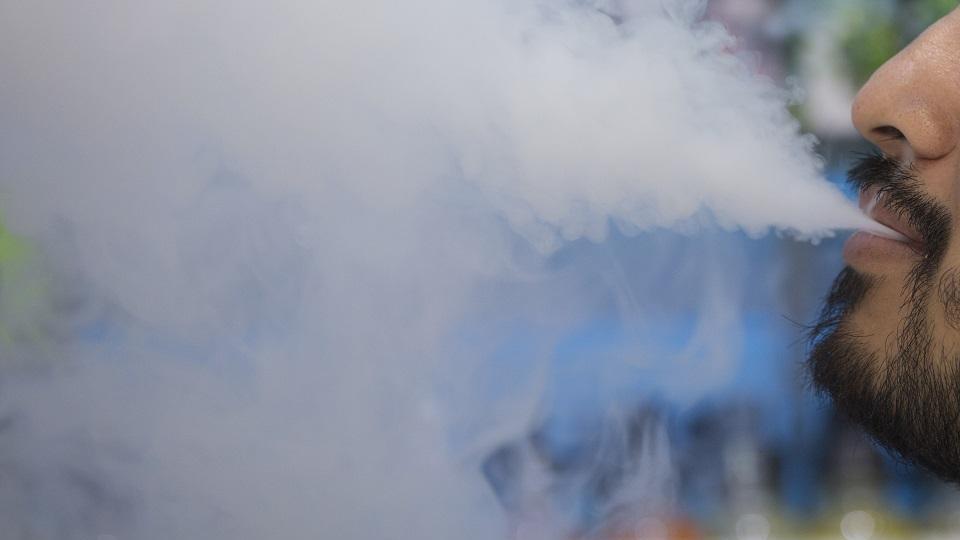DepEd reminds youth: Vaping not a necessity nor an accessory

BANGKOK, Thailand — The Department of Education (DepEd) is urging the Filipino youth not to consider electronic cigarettes or vapor products a necessity or an accessory.
Aside from having a variety of flavors, e-cigarettes, and vapes are marketed by the industry as a healthy and safer alternative to traditional tobacco products or smoking.
Such products have been the industry's tactic to gain a new audience to replace their losses as the number of tobacco smokers has declined over the past ten years.
"The approach of the industry is to convert our young people into replacing smokers. So you can now find learners and students who are saying that they are nonsmokers, but they are vapers, but at the same time, both are incredibly dangerous to their well-being. It does not remove the fact that they become very substance dependent," DepEd Assistant Secretary Dr. Dexter Galban said in an interview with GMA News Online.
He stressed that the 'vape trend' poses a major threat to the well-being of the younger generation, but most users are not aware of the risks and dangers behind it.
In 2019, the Global Youth Tobacco Survey (GYTS) said 1 out of 7 students aged 13-15 years old is already using e-cigarettes— an age group younger than what is allowed by existing laws.
"(Vaping) this affects them not only in terms of their health but also financially plus, of course, it takes advantage of their innocence and their vulnerability to the industry that seeks to turn them into smokers," Galban noted.
To which, he said the Education Department has been very firm in its stance, as reflected in our existing laws, that young learners should have "absolutely no connection" to tobacco products and vapes.
However, in this era, where social media serves as a huge platform to instill influence, Galban urged social media influencers to be responsible in using their platform and be the children's guide in the right direction.
"Young people really turn to their influencers, and I mean that in both the literal sense and the new-age sense. Those who influence their daily lives and the influencers that they see on social media, whether it be on TikTok, Facebook, or any other platform, and more so that when vaping first came into the picture, it was considered even a talent on a national television show," he said.
He stressed that having such exposures, especially on social media, easily entices the youth, which urges them to try vaping.
"They now see it in movies, they see their favorite celebrities and influencers using it as part of a plot device or probably as part of a side quest, and that is quite concerning because that has cascaded into it being part of the regular life of the younger generation," Galban added.
He then cleared that vaping is not a necessity or an accessory and it is not safer than smoking.
"Vaping is an unnecessary step for you especially to the youth who wants to become or feel more mature to smoke through vape, these are not essentials, and not an accessory either," he added.
Health professionals have been actively stressing that using electric cigarettes or vape products may put the country at risk of an epidemic of e-cigarette or vape-associated lung injury (EVALI).
Aside from this, parents also have a vital role in keeping themselves informed about the risks of vaping so they can educate and protect their children from this epidemic.
"At the end of the day, this is about social-behavioral change, and that doesn't happen overnight, so if they are bombarded with these products and they are made as a part of the norm, then it is going to be inherent to them that these things are okay while in fact, they are not," Galban noted.
Assistant Secretary Galban was among the facilitators during the ASEAN Regional Workshop on Protecting Children from Tobacco Industry Interference in Bangkok.
It was attended by over 70 government officials, youth representatives, and public health advocates from the ASEAN countries.
The two-day workshop was organized by the Southeast Asia Tobacco Control Alliance (SEATCA) a multi-sectoral non-government alliance promoting health and saving lives by assisting ASEAN countries in implementing tobacco control measures contained in the WHO Framework Convention on Tobacco Control. —





